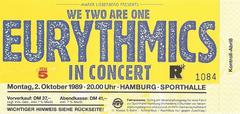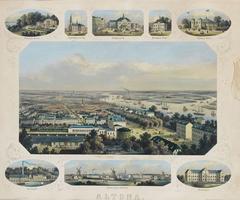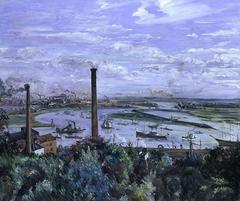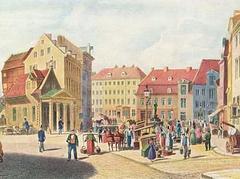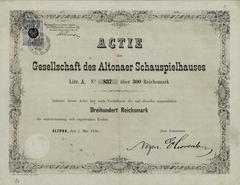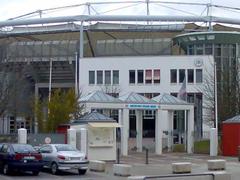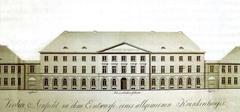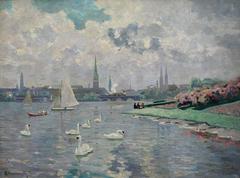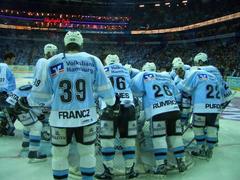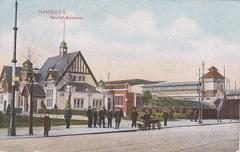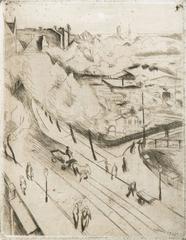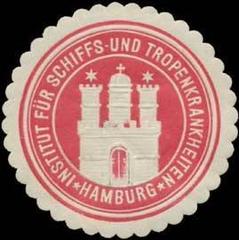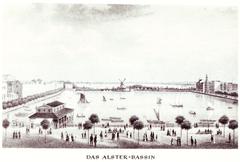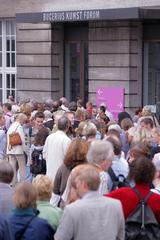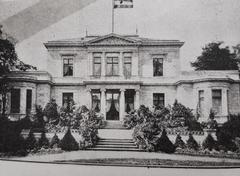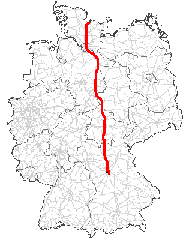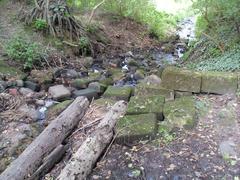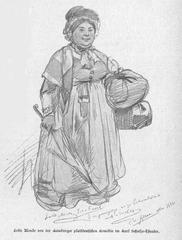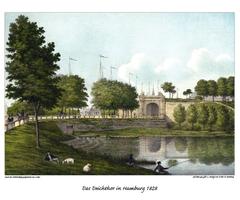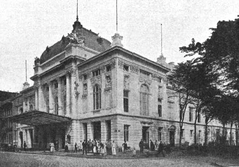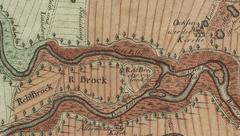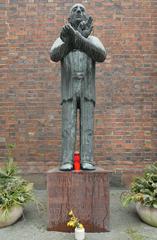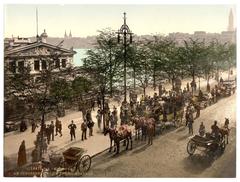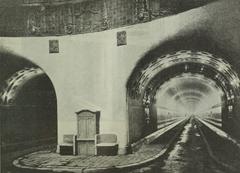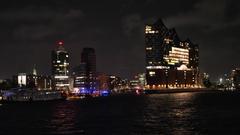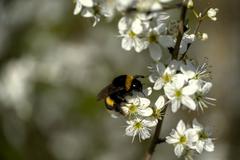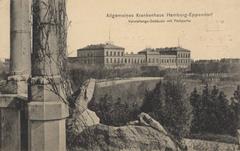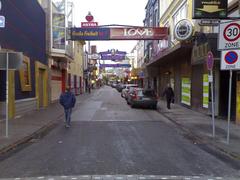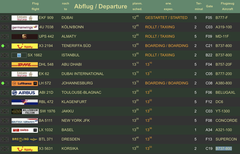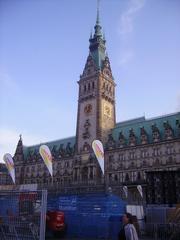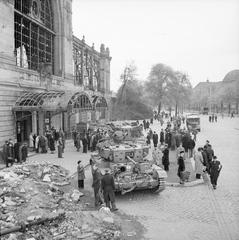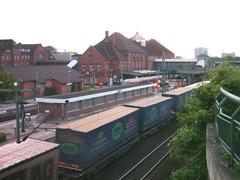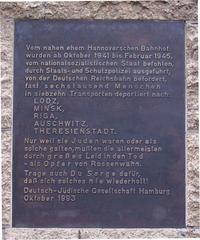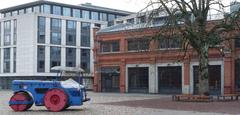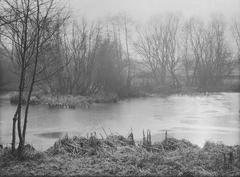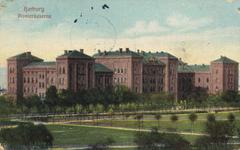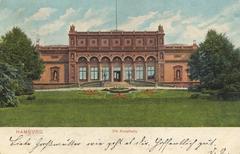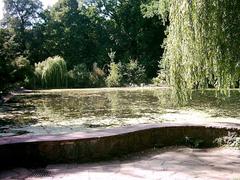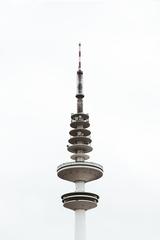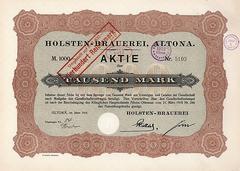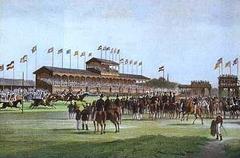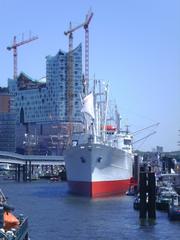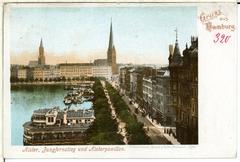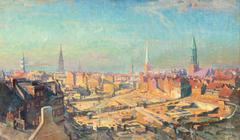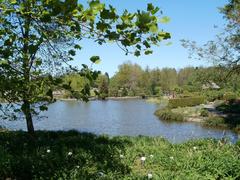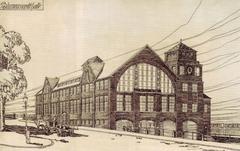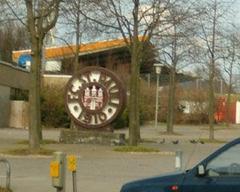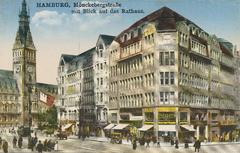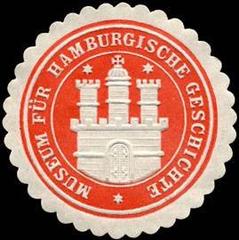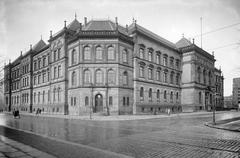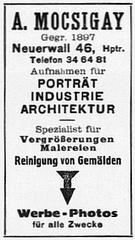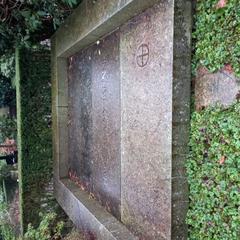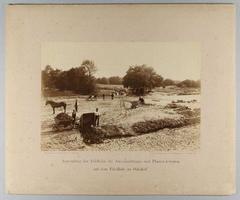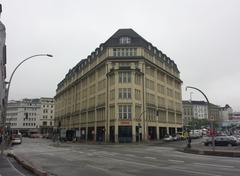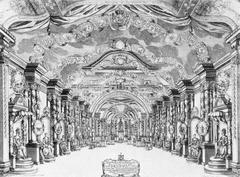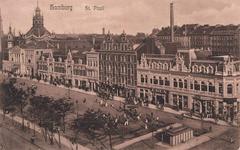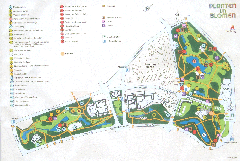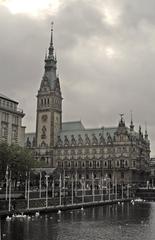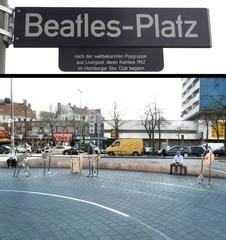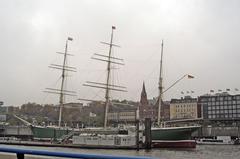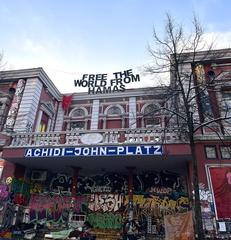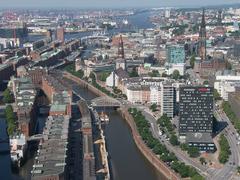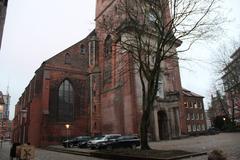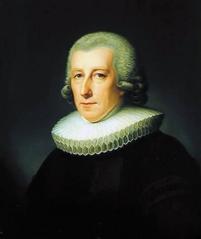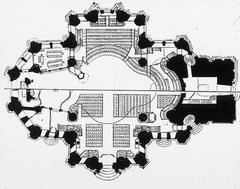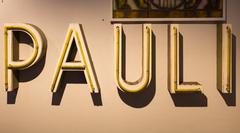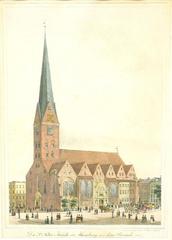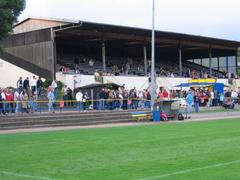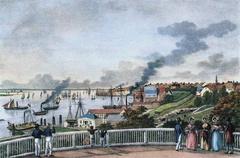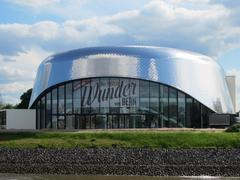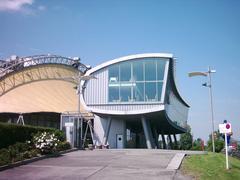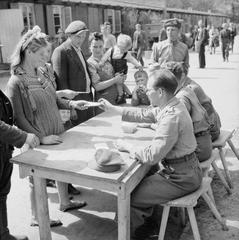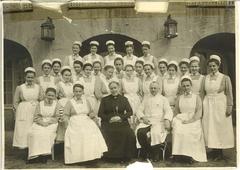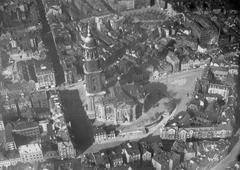Berne and Hamburg, Germany: Historical Sites, Visiting Hours, Tickets, and Attractions Guide
Date: 04/07/2025
Introduction
Berne and Hamburg are two exceptional European cities, each with its own distinctive historical and cultural identity. Berne, Switzerland’s de facto capital, charms visitors with its medieval UNESCO-listed Old Town and centuries-old traditions, while Hamburg, Germany’s second-largest city, blends maritime heritage with cosmopolitan energy and innovative architecture. This comprehensive guide provides detailed insights into the historical significance, visitor information, attractions, ticketing, and practical travel tips for both destinations, ensuring you are well-prepared to explore their rich heritage and vibrant present (TravelsHelper; Expert World Travel; Hamburg.com; Germany Travel Blog).
Table of Contents
- Introduction
- Historical Overview of Berne
- Practical Visitor Information for Berne
- Berne’s Architectural Heritage
- Berne’s Role in Modern History
- Hamburg: Origins and Hanseatic Legacy
- Maritime Heritage and Urban Transformation of Hamburg
- Practical Visitor Information for Hamburg
- Political, Cultural, and Social Evolution of Hamburg
- Architectural and Historical Landmarks of Hamburg
- Museums and Preservation of Heritage in Hamburg
- Visitor Tips for Berne and Hamburg
- Frequently Asked Questions (FAQ)
- Visiting Hours, Tickets, and Top Attractions in Berne and Hamburg
- Practical Information
- Summary and Final Tips
- References
Historical Overview of Berne
Medieval Foundations and Growth
Founded in 1191 by Berthold V, Duke of Zähringen, Berne’s location along the Aare River made it a formidable medieval settlement (Britannica). After gaining free imperial city status in 1218, Berne became a key member of the Swiss Confederation by 1353. The devastating fire of 1405 led to the reconstruction of the city in sandstone, shaping the unique character of its Old Town—now a UNESCO World Heritage Site (TravelsHelper).
Political and Cultural Significance
Since 1848, Berne has been Switzerland’s Federal City, hosting the government, Swiss National Bank, and National Library. With a population exceeding 144,000 (over 400,000 in the metro area) and a multilingual environment (German, French, Italian), Berne is a vibrant political and cultural hub (Expert World Travel).
Practical Visitor Information for Berne
- Visiting Hours: Most museums and landmarks open Tuesday–Sunday, 10 AM–5 PM (extended hours in summer).
- Tickets: Entry fees vary (Zytglogge tour ~CHF 20); Bern Museum Pass offers savings on multiple attractions.
- Accessibility: Most major sites are wheelchair accessible.
- Special Events: Zibelemärit (Onion Market) in November, Gurtenfestival in July.
- Guided Tours: Available daily in multiple languages.
- Photographic Spots: Gurten Hill, Aare River bridges.
Berne’s Architectural Heritage
The Old Town’s iconic arcades stretch over six kilometers, making them Europe’s longest covered shopping promenade. Historic features include the Zytglogge Clock Tower, Prison Tower, and Käfigturm, all emblematic of Berne’s medieval urban design (Visit Bern).
Berne’s Role in Modern History
Berne has played host to pivotal events, such as the 1954 FIFA World Cup final—the “Miracle of Bern”—and continues to balance its preservation of historic sites with modern development (Expert World Travel).
Hamburg: Origins and Hanseatic Legacy
Hamburg’s strategic location on the Elbe River established it as a vital trading hub. As a founding member of the Hanseatic League in the 13th century, the city flourished through commerce and self-governance. Despite adversity—including fires and wars—Hamburg maintained a spirit of autonomy and resilience (Hamburg.com).
Maritime Heritage and Urban Transformation of Hamburg
The Port of Hamburg is among Europe’s busiest, handling millions of containers annually. Its UNESCO-listed Speicherstadt, the largest warehouse district in the world, and the innovative Kontorhausviertel with landmarks like Chilehaus, showcase Hamburg’s architectural and commercial significance (Germany Travel Blog; Hamburg Travel).
Practical Visitor Information for Hamburg
- Visiting Hours: Museums and major sites typically open daily 10 AM–6 PM.
- Tickets: Museum entry €10–€15; Hamburg CARD provides discounts and free transport.
- Accessibility: Most attractions are accessible.
- Special Events: Hamburg Port Anniversary (May), Reeperbahn Festival (September).
- Guided Tours: Walking and boat tours available; booking in advance recommended.
- Photo Spots: Elbphilharmonie Plaza, Landungsbrücken, Old Elbe Tunnel.
Political, Cultural, and Social Evolution of Hamburg
Hamburg’s identity as a “Free and Hanseatic City” is evident in its governance and traditions. Its cultural scene boasts legendary music venues, the vibrant Reeperbahn, and the renowned Elbphilharmonie concert hall (Timeout).
Architectural and Historical Landmarks of Hamburg
Notable sites include Deichstrasse’s historic houses, the Old Elbe Tunnel, Bergedorf Castle, and the Krameramtsstuben. The Neuengamme Memorial is a sobering reminder of the city’s WWII past (Hamburg.com).
Museums and Preservation of Heritage in Hamburg
Key museums include the Museum für Hamburgische Geschichte, the International Maritime Museum, BallinStadt Emigrant Museum, and the open-air Kiekeberg Museum, offering immersive journeys through Hamburg’s history (Hamburg Travel).
Visitor Tips for Berne and Hamburg
- Berne: Walk the Old Town, visit the Zytglogge, and enjoy panoramic views from Gurten Hill.
- Hamburg: Explore Speicherstadt and Kontorhausviertel, take harbor boat tours, and use the Hamburg CARD for savings.
- Language: German is primary; English widely spoken in tourist areas.
- Etiquette: Respect local customs, especially at sites of remembrance.
Frequently Asked Questions (FAQ)
Q: When is the best time to visit Berne and Hamburg?
A: Late spring to early autumn (May–September) for pleasant weather and vibrant events.
Q: Where to buy tickets for major attractions?
A: Online or at venues; passes like the Bern Museum Pass and Hamburg CARD offer savings.
Q: Are guided tours available in English?
A: Yes, in both cities; advance booking recommended.
Q: How accessible are historic sites?
A: Most are wheelchair accessible; confirm specifics on official sites.
Hamburg: Cultural Significance, Local Identity, and Visitor Essentials
Hanseatic Heritage and Cosmopolitanism
Hamburg’s Hanseatic legacy is reflected in its self-governance, commercial spirit, and tradition of religious tolerance. Its port has long attracted diverse populations, shaping a vibrant multicultural community (hamburg.com; explorecity.life).
Neighborhoods and Everyday Life
Explore Altona’s Turkish markets, the Portuguese Quarter, creative Sternschanze, historic Blankenese, and lively St. Pauli. Parks like Planten un Blomen and Alster promenades offer green respite (mygermanyvacation.com; trip101.com).
Festivals and Events
Annual highlights include the Hamburger Dom (Northern Germany’s largest fair), Alstervergnügen, Christopher Street Day, and Hafengeburtstag (mygermanyvacation.com).
Culinary Traditions
Sample Fischbrötchen, Labskaus, Franzbrötchen, and international flavors at Isemarkt and Altona’s Turkish market (explorecity.life).
Language and Customs
German is official; English is common in tourist areas. Use “Moin” as a greeting, tip 5–10% in restaurants, and expect punctuality (hostelgeeks.com).
Berne Visiting Hours, Tickets, and Hamburg’s Historic District Attractions
Berne District Highlights
- Berner Schloss: Manor house with events; park open daily 8:00 AM–8:00 PM. Event tickets vary.
- Berner Gutspark: Landscaped park for walks and relaxation.
- Berner Heerweg: Showcases garden city architecture.
- Freibad Berne: Open-air pool, May–September, 9:00 AM–8:00 PM; tickets ~€4.50 (Hamburg and Beyond).
Hamburg Area Attractions
- Speicherstadt & Kontorhausviertel: UNESCO sites with striking architecture; guided tours available (Explorial).
- Miniatur Wunderland: World’s largest model railway; open daily 9:30 AM–6:00 PM; tickets from €20 (Germany Travel Blog).
- Elbphilharmonie: Plaza open 10:00 AM–10:00 PM; free entry, concert tickets vary.
- Landungsbrücken: Harbor boat tours and Fish Market (Sundays).
- Planten un Blomen: Urban park with gardens and summer events.
- Ohlsdorf Cemetery: World’s largest park cemetery (Fact Retriever).
- St. Pauli & Reeperbahn: Nightlife and music history (Explorial).
- Kunsthalle Hamburg: Major art museum.
Visitor Tips
- Getting Around: U1 U-Bahn connects Berne to Hamburg center in 25 minutes. HVV network is efficient; cycling lanes are widespread.
- Best Time to Visit: Late spring to early autumn for festivals and outdoor activities.
- Accommodation: Options in Wandsbek, Volksdorf, and central Hamburg.
- Events: Festivals, concerts, and local fairs throughout the year.
Notable Day Trips
- Volksdorf Open-Air Museum: Living history of rural northern Germany.
- Duvenstedter Brook Nature Reserve: Scenic hiking and wildlife.
- Hamburg City Center: Shopping, sightseeing, and lakeside relaxation.
Visiting Hamburg’s Historical Sites: Practical Tips
- Best Seasons: Spring and early autumn for pleasant weather; summer for festivals (destinationabroad.co.uk).
- Key Sites: Rathaus (open 8:00 AM–6:00 PM), Speicherstadt (free to explore), Elbphilharmonie (Plaza access free, reserve online).
- Transport: HVV network and Hamburg Card for unlimited travel (myglobalviewpoint.com).
- Safety: Standard precautions apply; emergency numbers 110 (police), 112 (fire/ambulance).
- Money: Credit cards widely accepted; carry cash for small purchases.
Summary and Final Tips
Berne and Hamburg offer immersive journeys through European history and culture. Berne’s medieval Old Town, rich museums, and festive traditions reveal Switzerland’s political and cultural evolution. Hamburg’s maritime legacy, dynamic neighborhoods, and architectural icons—like the Speicherstadt and Elbphilharmonie—reflect a city at the crossroads of tradition and modernity (TravelsHelper; Hamburg.com).
For a seamless experience:
- Book guided tours and tickets in advance.
- Use city passes (Bern Museum Pass, Hamburg Card) for savings.
- Download digital resources and the Audiala app for interactive maps and insider tips (Audiala).
- Respect local customs, enjoy culinary specialties, and explore beyond main tourist routes for authentic experiences.
For ongoing information and travel inspiration, follow official tourism platforms, check event listings, and explore further reading from the references below.
References & Further Reading
- TravelsHelper – Bern, Switzerland
- Expert World Travel – Bern Facts
- Visit Bern – What to Visit
- Hamburg.com – Historic Sights
- Germany Travel Blog – Hamburg Facts
- Hamburg Travel – Historic Hamburg
- Hamburg.com – Culture
- Explore City Life – Hamburg
- My Germany Vacation – Fun Things to Do in Hamburg
- Hamburg and Beyond – Visiting Hamburg
- Explorial – Fun Facts About Hamburg
- Germany Travel Blog – Hamburg Things to Do
- Fact Retriever – Hamburg Facts
- Destination Abroad – Is Hamburg Worth Visiting?
- My Global Viewpoint – Hamburg Travel Guide
- Pack and Paint – Things to Do in Hamburg
- A Backpacker’s World – Is Hamburg Worth Visiting?
